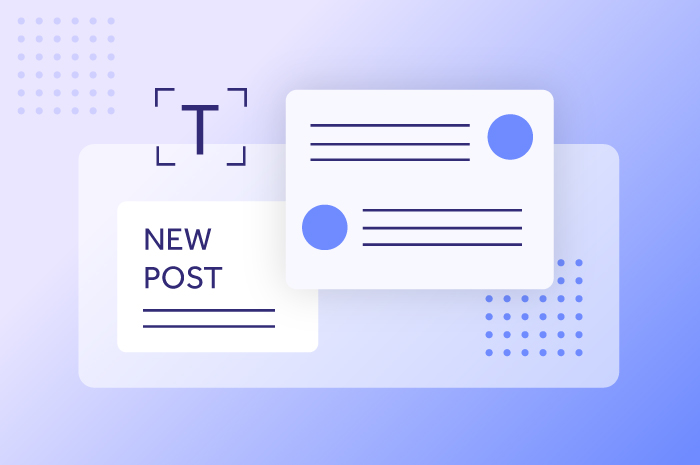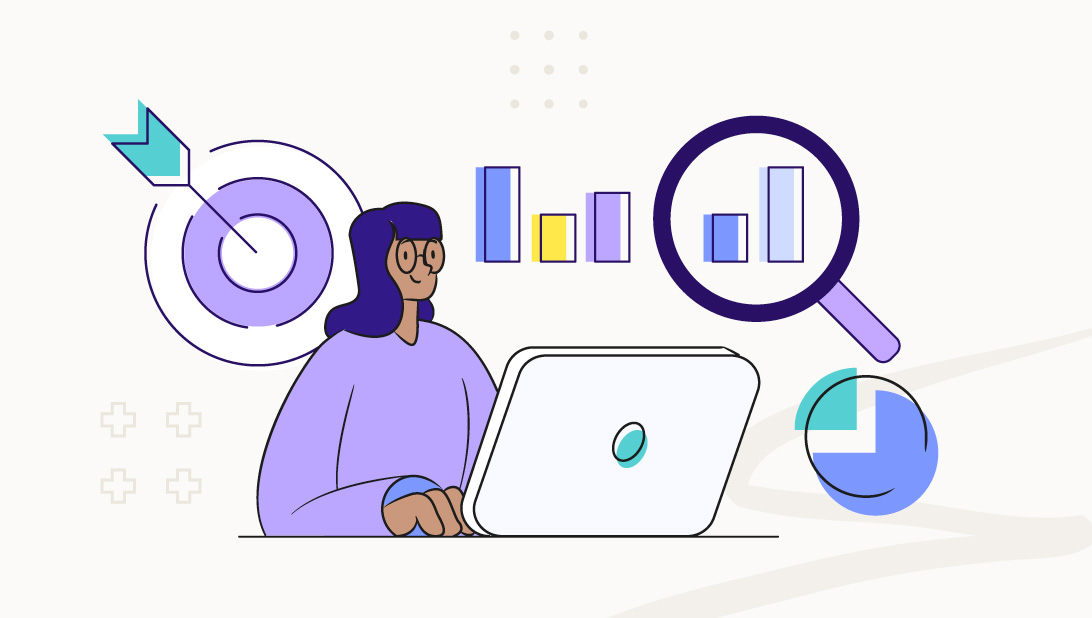



Artificial intelligence (AI) is changing how people in nearly every industry work. And AI in content marketing and search engine optimization (SEO) is making a particularly big splash.
A recent SurveyMonkey study found that 51% of marketing teams use AI to optimize content. For good reason, too: AI tools can help teams generate keyword-rich content in seconds or analyze data to identify search intent and optimize SaaS SEO performance.
However, there’s a catch. When everyone uses AI, voices start to blur, and discerning business-to-business (B2B) audiences start to gloss over repetitive content. In fact, one study found that 52% of people are less engaged with content they perceive to be AI-generated.
How can you stand out in high-stakes, trust-driven industries like B2B SaaS? Algorithm-friendly content is just one piece of the puzzle. To stay relevant, earn trust, and enhance your brand credibility, your content must incorporate unique perspectives, originality, and a human voice.
Content marketers can use AI tools to streamline production workflows, leverage data-driven insights, and adapt to the evolving search landscape. Here are key ways you can use AI to its fullest potential.
In the past, matching search terms was enough to drive effective SEO. Today, you must truly understand your audience’s needs. With Google's focus on user intent, semantic search, and AI overviews, ranking isn’t just about using the right keywords. Your content needs to provide value in the appropriate context to stand out.
Content marketers can use AI in SEO to:
AI in content marketing helps scale your operations by generating outlines, first drafts, social posts, and more. By taking that manual work on, AI tools free human writers to focus on strategy and refinement rather than repetitive tasks. B2B SaaS marketers, who must produce content to address multiple personas, verticals, and funnel stages, can benefit significantly from these capabilities.
AI tools can tailor messaging to specific segments or help you repurpose content like webinars or white papers into SEO-optimized blogs or social posts. You can also use AI to produce multilingual content to reach global audiences — but be sure to have local experts review the content for accuracy and cultural appropriateness.
While content creation is in the spotlight, it may not be the most game-changing function that AI in content marketing offers. AI tools can analyze vast volumes of data to help improve performance over time, allowing lean marketing teams in fast-moving SaaS environments to connect the dots and track their efforts against business outcomes.
You can leverage AI-driven insights to forecast which content topics are likely to perform well, improve existing content, A/B test variations in real-time for conversion optimization, and generate SEO scorecards and keyword density alerts as you write.
Modern B2B buyers expect personalized experiences, and AI tools enable you to implement these strategies without massive manual effort. Intelligent automation capabilities help improve engagement and lead quality, ensuring your SaaS SEO campaigns drive high-intent traffic and convert interested users into leads.
For example, you can leverage AI tools to dynamically personalize content recommendations on your website and customize email nurture sequences based on recipients’ data and behaviors. AI platforms can also help you adapt landing page messaging in real-time to maximize conversions.
While AI in content marketing helps unlock efficiencies and insights, it simultaneously creates a new challenge: When everyone uses the same tools and implements similar strategies, organizations risk getting lost in a sea of sameness.
AI-generated content might check all the SEO boxes, but it won’t earn clicks, shares, or trust if it lacks unique perspectives or original insights. Worse, it can harm your brand’s authority if readers perceive your content as generic or derivative, especially in the B2B SaaS industry, where expertise and credibility are top decision-making criteria.
Marketers must be discerning and understand when to leverage AI in content marketing, when human expertise is non-negotiable, and how to balance AI with human creativity. AI isn’t a magic bullet, but it is ideal for streamlining research, accelerating production, and deriving timely, data-driven insights. Here are the top ways to apply AI strategically.
AI tools can help you pinpoint and generate the right buyer personas. This capability is particularly handy when you target different industries and roles or when you need to segment your content to support your strategic goals.
“If you don’t have a well-defined content marketing strategy, you may use AI applications to help create or refine your customer personas. These tools can access vast amounts of information to identify your audience’s needs and challenges, where they consume content, and what topics they’re interested in.”
— Kay Keough, Director of Content Development at Spot On.
Use AI to analyze your customer relationship management (CRM), website, and campaign data to spot behavioral trends and identify common attributes among high-converting customers. You can also look for top-performing content topics based on audience segment to inform targeting and personalization tactics.
AI applications can take much of the content drafting burden off team members by writing the first pass for blog posts, landing pages, video scripts, and more. Your team members, then, have more time to refine content and amplify your brand voice.
Additionally, you can use AI tools to do more with less, addressing different verticals and use cases without reinventing the wheel by:
AI-powered features like real-time keyword suggestions and SEO scoring tools help you optimize content faster and smarter. They enable you to surface underperforming content for targeted improvements, ensure your team consistently follows SEO best practices, and identify internal linking opportunities to boost rankings.
You can use AI in content marketing to help you manage when and where your content goes live and who sees it, all in service of maximizing impact. Effective tools can:

Resource: AI Content Generation Guidelines
With this guide, you can dive into the challenges inherent in generating content with AI, explore reasonable applications of intelligent technology for content creation, and walk through best practices for upholding quality. Read on to discover the top resources you can quickly implement to support your content initiatives.
AI in content marketing can drive efficiency, but these tools can’t replace the human element, especially when your goal is to build trust, enhance credibility, and differentiate your brand. Let’s explore how to stand out by bringing in human insights, original perspectives, and firsthand expertise.
“Content experts must feed strong inputs into AI applications and edit the outputs to ensure accuracy, fairness (lack of bias), and alignment with legal, compliance, and regulatory requirements. They also need to incorporate brand tone and voice, address channel-specific rules, and follow SEO best practices to be successful.”
— Kay Keough, Director of Content Development at Spot On.
Accuracy and trust are non-negotiable in the B2B SaaS space. AI content might sound confident, but it often fails to reflect an industry’s nuances, address compliance concerns, and reflect your audience’s real-world challenges. To meet Google’s emphasis on EEAT (Experience, Expertise, Authoritativeness, and Trustworthiness), your content needs to foreground firsthand knowledge.
All thought leadership pieces should be human-led, while case studies and customer stories should reflect audience sentiments. Ensure you have internal experts vet claims or advice to ensure accuracy and compliance.
AI can imitate, but it can’t originate. When everyone feeds similar prompts into similar tools, human creativity becomes your best advantage to set your content apart.
Moreover, human input is essential for expressing your brand’s unique point of view, culture, tone, and value. You can inject personality and humor to bring an article to life, for example, or add color and context to make a dataset relatable. You can even refine AI-created articles to craft engaging narratives that amplify your brand’s positioning.
AI is great at answering “what” and “how” questions. It struggles, however, with “why it matters” questions that require an emotional assessment. Human content creators can weave empathy, relatability, and lived experience with information to build deeper connections with your audience.
Adding empathy means framing your content around real-world customer pain points and telling stories that show your brand value in action. It also requires authenticity to position your company as a trusted ally in the audience’s success.
AI in content marketing has become essential for enhancing SEO and scaling production. However, AI applications alone can’t make your content remarkable, relatable, and resonant.
To succeed in today’s SaaS SEO and content landscape, brands must balance automation and authenticity. Use AI to support data-driven strategy, research, ideation, content optimization, formatting, and repurposing. Then, bring in the human touch to deliver originality, insight, and emotional connection.
At Spot On, we blend AI capabilities with content marketing expertise to help your brand amplify its personality and build trust with your audience. Schedule a meeting to explore how we can help you rise above the generic and create content that makes an impression.


Rebecca Graves co-founded Spot On in 2012. As a partner and leader of client services, she takes immense pride in being in charge of “client happiness.” The role allows her to wield her problem-solving skills while fostering big-picture perspectives and team building. Rebecca’s more than 35 years of experience have equipped her to translate strategic planning expertise for the advancement of tech companies transforming the healthcare, financial, and legal industries.
Get the latest and greatest posts sent straight to your inbox.


